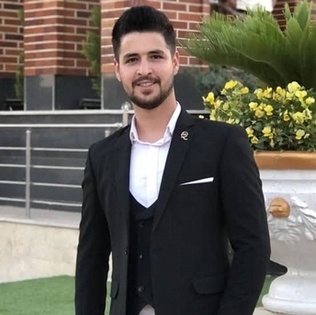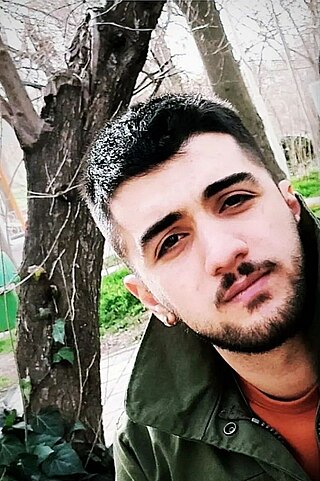
The state of human rights in the Islamic Republic of Iran has been regarded as very poor. The United Nations General Assembly and the Human Rights Commission have condemned prior and ongoing abuses in Iran in published critiques and several resolutions. The government is criticized both for restrictions and punishments that follow the Islamic Republic's constitution and law, and for "extrajudicial" actions by state actors, such as the torture, rape, and killing of political prisoners, and the beatings and killings of dissidents and other civilians. Capital punishment in Iran remains a matter of international concern.
Capital punishment is a legal penalty in Iran. The list of crimes punishable by death includes murder; rape; child molestation; homosexuality; drug trafficking; armed robbery; kidnapping; terrorism; burglary; incest; fornication; adultery; sodomy; sexual misconduct; prostitution; plotting to overthrow the Islamic government; political dissidence; sabotage; arson; rebellion; apostasy; blasphemy; extortion; counterfeiting; smuggling; recidivist consumption of alcohol; producing or preparing food, drink, cosmetics, or sanitary items that lead to death when consumed or used; producing and publishing pornography; using pornographic materials to solicit sex; capital perjury; recidivist theft; certain military offences ; "waging war against God"; "spreading corruption on Earth"; espionage; and treason. Iran carried out at least 977 executions in 2015, at least 567 executions in 2016, and at least 507 executions in 2017. In 2018 there were at least 249 executions, at least 273 in 2019, at least 246 in 2020, at least 290 in 2021, at least 553 in 2022, at least 834 in 2023, and at least 226 so far in 2024. In 2023, Iran was responsible for 74% of all recorded executions in the world.
Ruhullah, also spelled Rouhollah, Ruhollah or Rohullah and in other ways, is a male Arabic given name composed of the elements Ruh and Allah. It means spirit of God. It may refer to:
Events in the year 2010 in the Islamic Republic of Iran.
Events in the year 2011 in the Islamic Republic of Iran.
Rouhollah Dadashi was an Iranian powerlifter, bodybuilder and strongman, competing for Iran in international strongman competitions.

Sam. M. Sarabi is the editor for the Idea & History and book services of Shargh Newspaper, who was summoned to the Intelligence Ministry on February 14, 2011, and has been in detention since then. He was for some time (2012-2014) in Middle East and North Africa (MENA) Advisor at Human Rights Watch (HRW).While advising Human Rights Watch, she traveled to Syria and Iraq many times to prepare reports and has been awarded many prizes. After that, he worked as a freelance journalist with some of Persian opposition media like Roozonline, Radiozamaneh, Sharq_e_Parsi, Khodnevis, etc.

Public protests took place in several cities in Iran beginning on 28 December 2017 and continued into early 2018, sometimes called the Dey protests. The first protest took place in Mashhad, Iran's second-largest city by population, initially focused on the economic policies of the country's government; as protests spread throughout the country, their scope expanded to include political opposition to the theocratic government of Iran and its longtime Supreme Leader, Ali Khamenei. The Iranian public showcased their fury in the protests with a wide repertoire of chants aimed at the regime and its leadership. According to The Washington Post, protesters' chants and attacks on government buildings upended a system that had little tolerance for dissent, with some demonstrators even shouting "Death to the dictator!"—referring to Supreme Leader Ayatollah Ali Khamenei—and asking security forces to join them.
Jafar Kazemi was a political prisoner in Iran who was sentenced to death for co-operation with the Iranian opposition group People's Mujahedin of Iran and was hanged in Evin Prison on January 24, 2011, along with another political prisoner, Mohammad Ali Haj Aghaei. His execution was widely covered by the press and brought international attention to the human rights situation in Iran.

The 2019–2020 Iranian protests, sometimes known as Bloody November or Bloody Aban, were a series of nationwide civil protests in Iran that took place in 2019 and 2020. Initially caused by a 50–200% increase in fuel prices, they occurred as part of the wider Iranian Democracy Movement, leading to calls for the overthrow of the government in Iran and Supreme Leader Ali Khamenei. The protests commenced as peaceful gatherings on the evening of 15 November but spread to 21 cities within hours, as videos of the protest circulated online, eventually becoming the most violent and severe anti-government unrest since the Iranian revolution in 1979.

Navid Afkari Sangari was an Iranian wrestler who was sentenced to death and executed in Shiraz after having been accused and convicted of murdering a security guard during the 2018 Iranian protests; sources from outside Iran also cited convictions on other charges related to Afkari's participation in the protests, while Iranian sources denied that the case had any connection to the protests. Afkari had filed a complaint with the Iranian judiciary, and stated in an audiotape recording that was smuggled from prison, that his initial confession had been obtained under torture; the Iranian judiciary denied the torture claims, and Iranian state media broadcast a recording of the confession. There were worldwide calls for Afkari to be pardoned, including by International Olympic Committee President Thomas Bach, and by then U.S. president Donald Trump. Afkari's brothers Vahid and Habib were sentenced to 54 and 27 years, respectively, in prison in the same case.

Jamshid Sharmahd was a U.S.-based German-Iranian software engineer. A permanent resident of the United States from 2003, Sharmahd had been targeted by the Iranian government for his connections to Tondar, an Iranian monarchist group engaging in violent attacks. He was abducted by Iranian agents in a forced disappearance in 2020. In a 2023 trial condemned by Amnesty International, Germany, the United States, and the European Council, Sharmahd was sentenced to death. He was held in solitary confinement until his execution on 28 October 2024.
Amadnews is an Iranian news website and Telegram channel. Its chief editor was Ruhollah Zam, it was founded by him, Sam. M. Sarabi, Majid Niknam and Babak Ejlali.
This is a broad timeline of the ongoing series of protests against the government of Iran, sparked by the death of 22-year-old Mahsa Amini on 16 September 2022. Amini had fallen into a coma after having been detained by the Guidance Patrol, allegedly for wearing an "improper" hijab—in violation of Iran's mandatory hijab law—while visiting Tehran from Saqqez.
Mohsen Shekari was a 22-year-old Iranian man who was executed by the state of Iran after being convicted of injuring a member of Iran's Basij militia and being accused of Moharebeh, an Arabic word translating to "waging war against God".
Mohammad Boroughani is an Iranian man facing a death sentence for his participation in the Mahsa Amini protests. He was found guilty of Moharebeh, which translates to "Waging War Against God," and was sentenced to death. Boroughani and another death-row inmate, Mohammad Ghobadloo, have emerged as new faces of outrage in Iran in response to the political executions of Mahsa Amini protestors. Hundreds of demonstrators gathered at Karaj's Rajayi-shahr Prison on January 9, 2023, when word spread that Boroughani and Ghobadloo had been sent to solitary confinement before of their scheduled execution. Boroughani's execution was temporarily halted two days later. Boroughani's trial on October 29, 2022, was also notable because it was the first trial directly linked to the Mahsa Amini protests, which drew widespread condemnation from human rights organizations and the international community.

Mohammed Ghobadlou was an Iranian man executed for his participation in the 2022 Mahsa Amini protests. He was charged with murder and moharebeh, which translates to "waging war against God", and was sentenced to death. He was accused of running over Iranian special police units in Parand city with a car, killing Farid Karampour Hassanvand and injuring five of police units.
Hamid Ghareh-Hassanlou was arrested in nationwide protests in Iran after the death of Mahsa Amini. He is a Gonabadi dervish and a medical doctor who specializes in medical imaging. He was charged with killing a Basiji member during the funerals of Hadis Najafi by the Islamic Revolutionary Court in Karaj. His wife, Farzaneh Ghareh-Hassanlou was arrested the same day. They were reportedly beaten during the arrest, and Hamid's ribs were later reported broken.

Mohammad Mehdi Karami was a 21-year-old Iranian-Kurdish man who was executed by the Islamic Republic of Iran for his involvement in the Mahsa Amini protests. He was convicted of Fisad-e-filarz for allegedly being involved in the killing of a Basij militiaman during protests in Karaj commemorating the 40-day anniversary of Hadis Najafi's death. Karami was executed alongside 39-year-old volunteer children's coach Seyyed Mohammad Hosseini, another man who was also convicted of Fisad-e-filarz for his alleged involvement in the same killing. Both Karami and Hosseini asserted their innocence, and human rights organizations have accused Iranian authorities of using "shoddy evidence" to convict them.

Seyyed Mohammad Hosseini was a 39-year-old Iranian man who was executed by Iran's Islamic Republic for his participation in the Mahsa Amini protests. He was also known as Kian Hosseini. He was found guilty of Fisad-e-filarz for his alleged involvement in the murder of a Basij militiaman during demonstrations in Karaj during the 40th-day memorial of Hadis Najafi. Hosseini was hanged with Mohammad Mehdi Karami, a 21-year-old sportsman who was also convicted of Fisad-e-filarz for his alleged role in the same killing. Hosseini maintained his innocence throughout his detention and trial.








